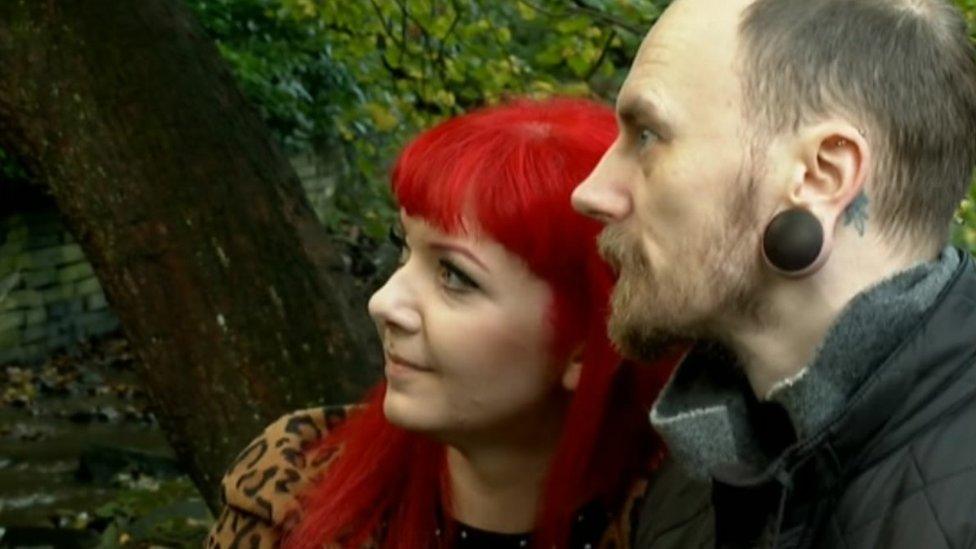Secondary infertility: When you can't have a second child
- Published
Manon and Chris have been unable to conceive since having their daughter Efa
Blessed and cursed, doting parents, but unable to have another child. This was the stark reality for Manon and Chris.
The couple spent £14,000 on fertility treatment to conceive a second child.
"Secondary infertility is when you've experienced a natural pregnancy and you struggle to conceive a second," said Manon.
The condition affects about 5% of the UK population, the British Fertility Society said.
And Manon, 33, from Bala, Gwynedd, said there needs to be more support for parents like them.
"It's really hard to cope with, and frustrating," she said.
"And guilt comes in as well, when you have a child already, because you feel guilty that you can't provide them with a sibling."
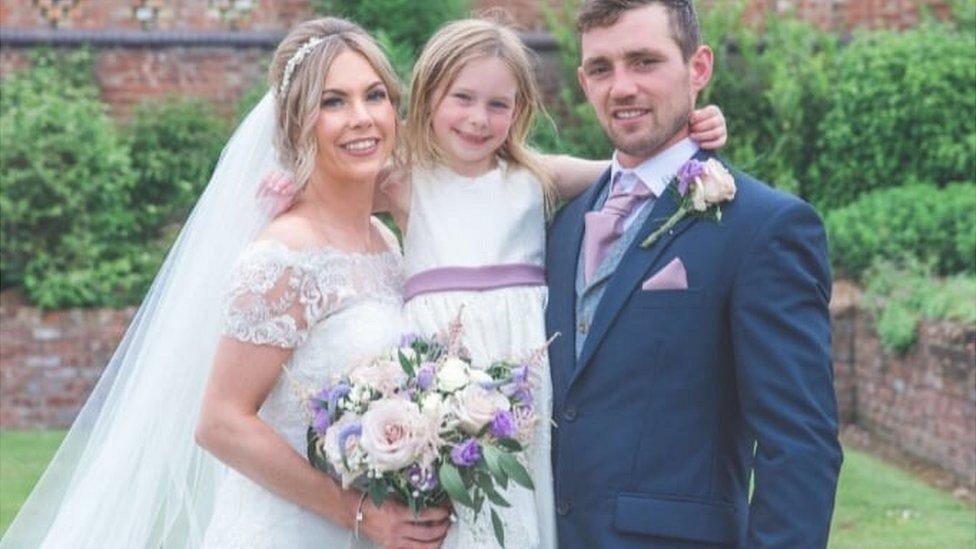
The couple have been trying for another child for the last seven years
The couple have been trying to conceive for the last seven years, enduring miscarriage, and IVF.
Manon said: "You're paying so much for it, you think it is sure to work.
"IVF is not an easy road at all to take. I hadn't read up on it, as I should have really, I had no idea what was in front of us."
Infertility 'stigma'
"There's a stigma around secondary infertility," she said.
"People are afraid of talking about it, because of that fear that people will judge them."
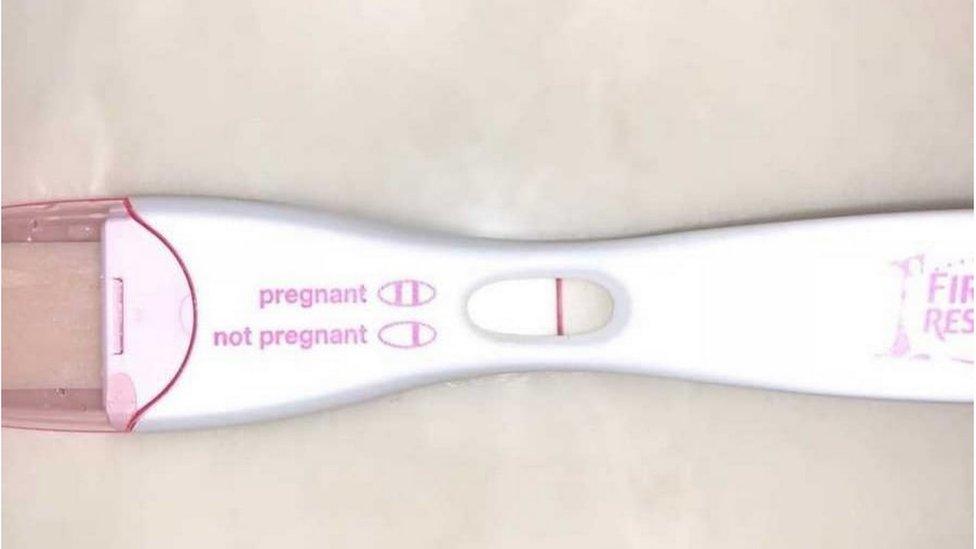
Despite the treatment, Manon had to live with the disappointment of negative pregnancy tests
Chris said: "I'm a quiet person generally and find it hard to talk about anything, let alone something as personal as infertility.
"I feel I have to be strong for her, as she had struggled with her mental health after the first round of IVF.
"It was hard. Seeing your wife going through IVF and the effect the medication was having on her body."
Mental health struggles
Manon said she went into "quite a dark place" after the first round of IVF.
"Secondary infertility takes a toll on your mental health, your physical health, your emotional health," she said.
"I struggled with depression and anxiety and I'm just lucky to have the most amazing husband and family and friends, that were with us every step of the way."
Embarking on a second round of IVF treatment last year, Manon was more prepared.
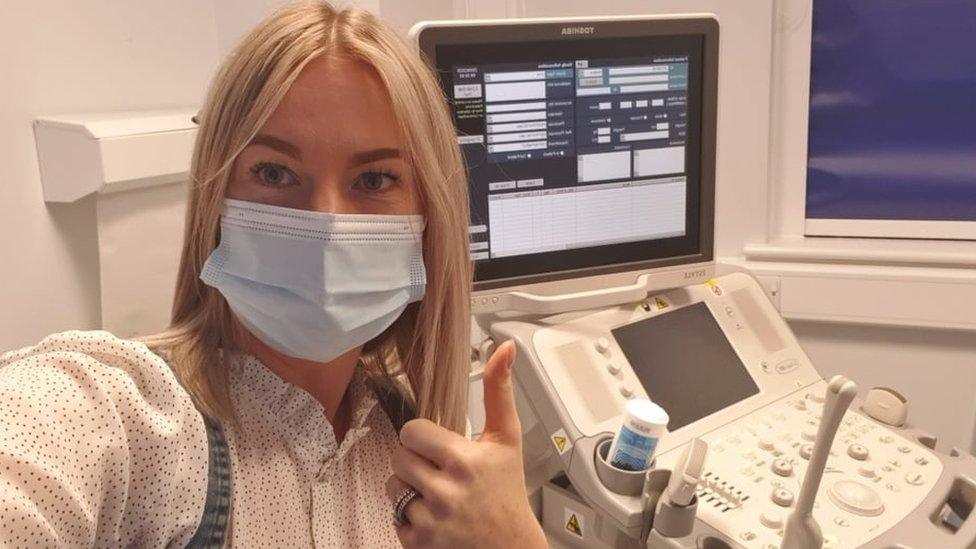
The two rounds of IVF was an arduous process for both Manon and Chris - involving prolonged medication and hospital visits
She had found support, especially from online communities willing to talk about secondary fertility and share their own experiences.
"I found great comfort in community groups and pages on Facebook and Instagram," she said.
"Secondary infertility groups where I could be myself and be open and honest with them, and tell them exactly how I felt going through secondary infertility.
'Help with costs'
The couple believe those in a similar position to them should be receiving more help.
"I find the fact that couples suffering from secondary infertility have to pay £7,000 for one round of IVF is absurd," said Manon.
"Why can't they offer a round for half the price if the first round doesn't work?
"Not everyone in a financially stable position has IVF as an option, which means that those couples are completely ruled out."
The criteria for infertility and IVF treatment has been developed by the Welsh government's specialised health services.
NHS treatment is only available to couples where one partner has no biological or adopted children.
A spokesman said the issue of secondary infertility had not been raised as a matter in the Senedd in recent years.
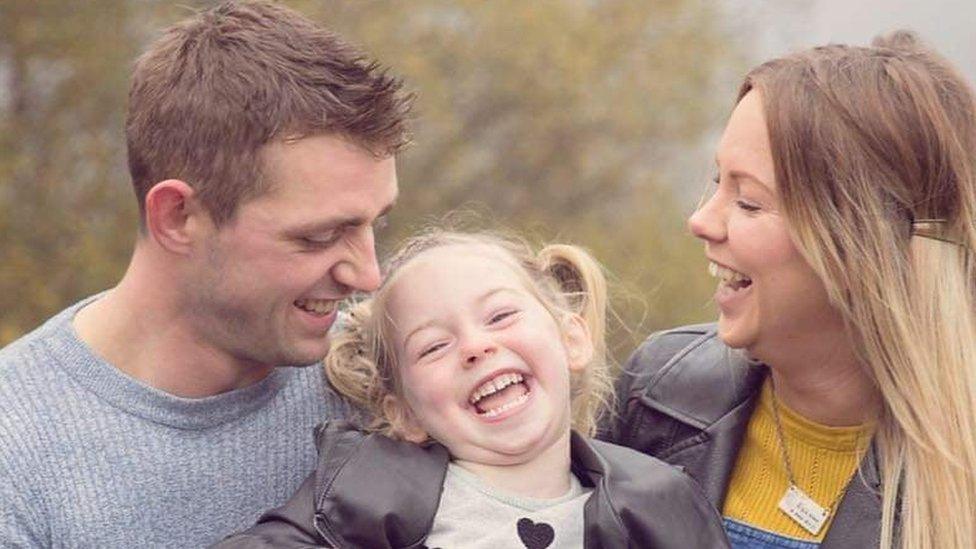
The couple are now focused on living life as a happy family of three
But after two failed IVF rounds themselves, Manon and Chris have decided they will not be going for a third attempt.
They have considered adoption, but for now are more focused on enjoying life as a family of three.
"We've started to accept that we're going to have one child, and we're fine with that," added Manon.
"Because, to be honest, we couldn't ask for a more special child than Efa, she is a special little girl and we are very proud of her every day."
- Published28 March 2021
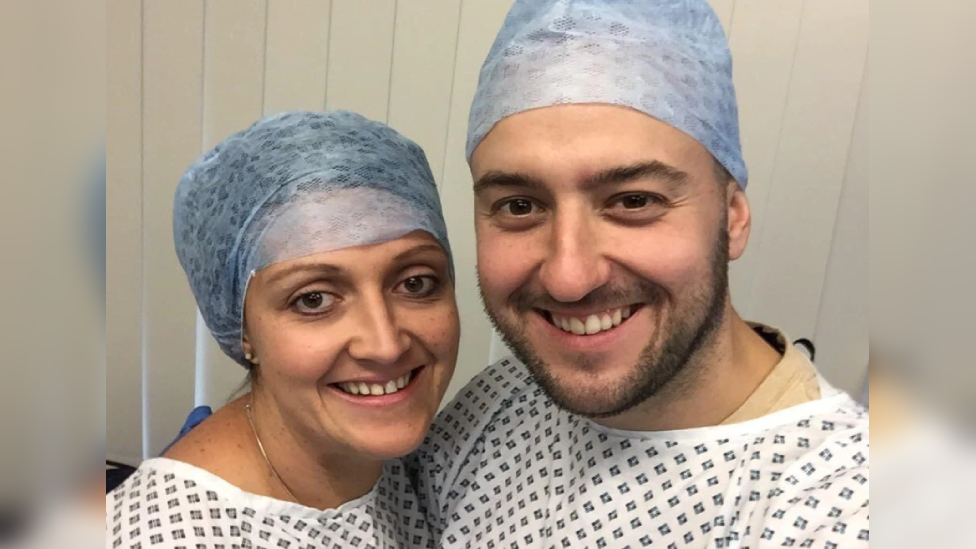
- Published29 October 2021
